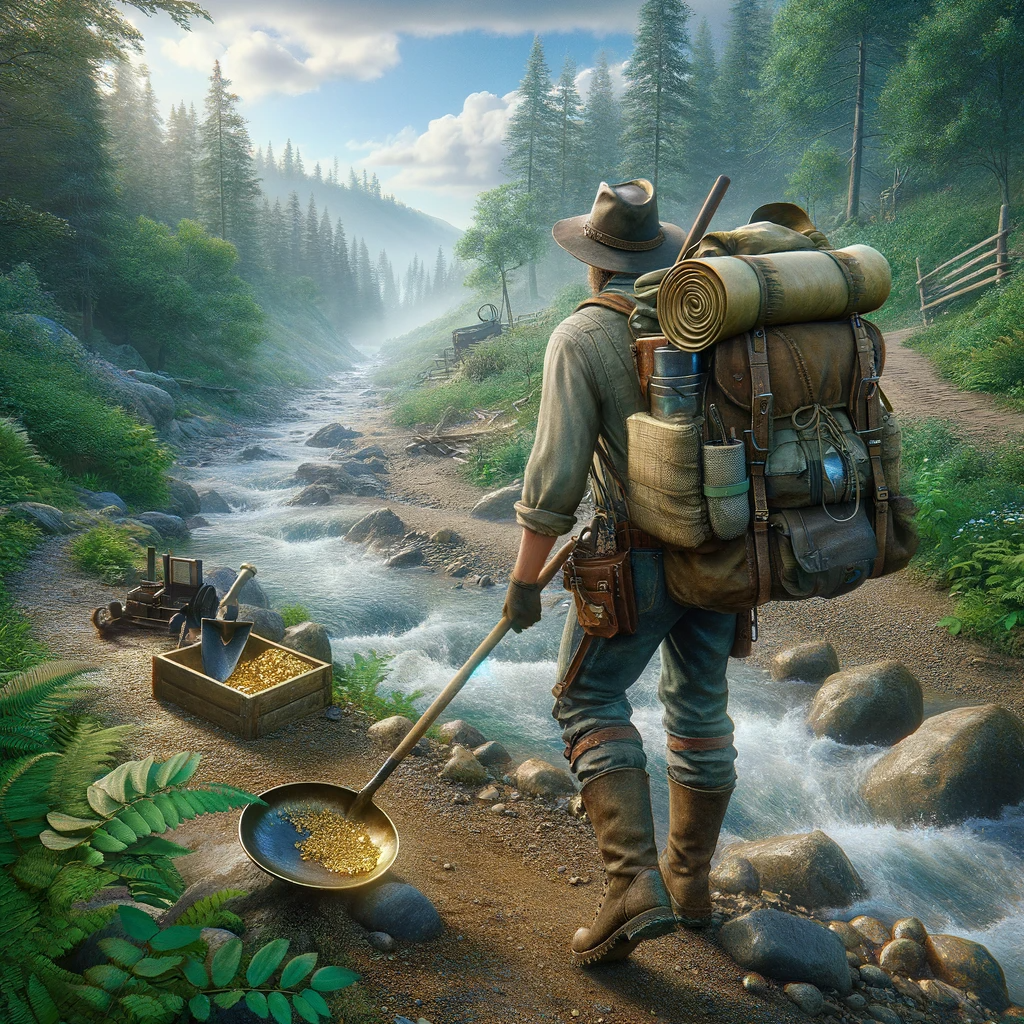2. The Thrill of Discovery: There's an undeniable excitement in the possibility of finding real gold. Each flake or nugget carries the thrill of a personal discovery.
3. Connection with Nature: Gold prospecting often takes you to picturesque and remote locations. It's a great way to connect with nature and enjoy the outdoors.
4. Community and Camaraderie: A community of prospectors, ranging from amateurs to seasoned veterans, shares tips, stories, and experiences, fostering a sense of camaraderie.
5. Potential Financial Reward: While not guaranteed, there's always the chance of finding gold that holds real monetary value.
Getting Started with Gold Prospecting
1. Understanding Gold Deposits: Gold is typically found in two types of deposits:
Placer Deposits: Found in riverbeds where erosion has concentrated the gold.- Lode Deposits: Located within rock formations, requiring more advanced methods to extract.
2. Basic Equipment:
- Gold Pan: The simplest and most essential tool for gold prospecting.
- Shovel and Classifier: For digging and separating larger rocks from potential gold-bearing material.
- Sluice Box: A more advanced tool, used to process larger amounts of material.
- Metal Detector: Useful for scanning for larger nuggets.
3. Learning Basic Techniques:
- Panning: The process of swirling material in a gold pan with water to separate the gold.
- Sluicing: Using a sluice box to process material more efficiently than panning.
- Metal Detecting: Scanning for gold nuggets using a metal detector.
4. Research and Planning:
- Location: Research to find legal and promising areas for prospecting. Public lands and mining claims are common spots.
- Regulations: Ensure you are aware of and comply with local laws and regulations.
5. Safety and Preparedness:
- Gear: Wear appropriate clothing and safety gear.
- Wildlife and Environment: Be aware of local wildlife and respect the environment.
- Health and Safety: Stay hydrated, use sunscreen, and be prepared for emergencies.
Advanced Techniques and Equipment
As you gain experience, you might explore more advanced techniques like dredging (using a vacuum to suck up material from the bottom of rivers or streams) or hard rock mining (extracting gold from its primary rock source). These methods require more equipment, expertise, and often, a higher investment.
Joining the Community
Participating in local gold prospecting clubs or online forums can provide invaluable knowledge, tips, and companionship. These communities often organize outings, workshops, and events where you can learn and share experiences.
Responsible Prospecting
Always prospect responsibly:
- Respect Land Rights: Ensure you have permission to prospect in an area.
- Environmental Care: Minimize your impact on the environment and leave areas as you found them.
- Ethical Conduct: Follow the “prospector’s code” of ethics, respecting other prospectors and the environment.
Conclusion
Gold prospecting can be a wonderfully rewarding hobby, offering a unique blend of adventure, potential financial gain, and a strong sense of history. It's a pursuit that can be as simple or as involved as you choose, making it accessible to people of various ages and abilities. With the right equipment, knowledge, and respect for the environment and laws, you can embark on an exciting journey into the world of gold prospecting. Happy prospecting!





No comments:
Post a Comment